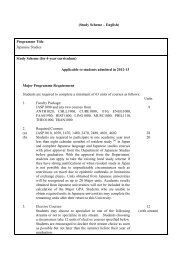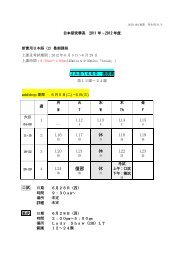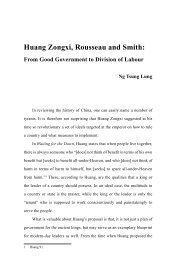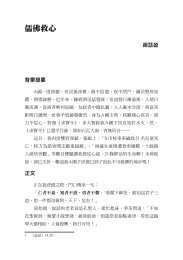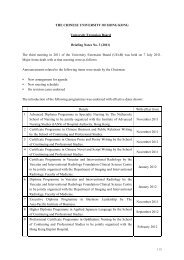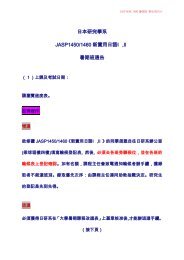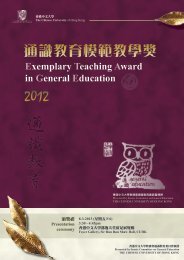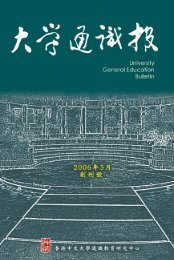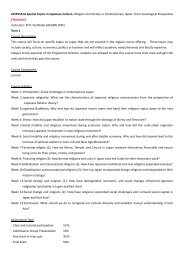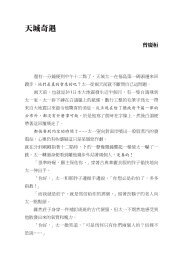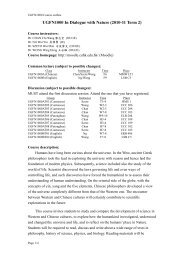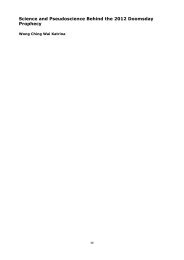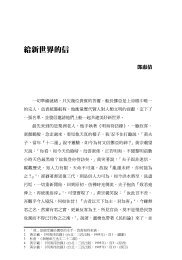ä¸è¼å ¨æ¸ - The Chinese University of Hong Kong
ä¸è¼å ¨æ¸ - The Chinese University of Hong Kong
ä¸è¼å ¨æ¸ - The Chinese University of Hong Kong
Create successful ePaper yourself
Turn your PDF publications into a flip-book with our unique Google optimized e-Paper software.
218 Teaching and Learning in General Education<br />
Jennie Collins was charged with driving under the influence <strong>of</strong> a<br />
controlled substance, and a jury found her guilty. In her defense, Jennie<br />
had agreed that she was driving under the influence, but argued that her<br />
intoxication was involuntary. <strong>The</strong> judge instructed the jury that the burden<br />
<strong>of</strong> proving involuntary intoxication rested on the defendant, and that she<br />
had to prove by a preponderance <strong>of</strong> the evidence that her intoxication was<br />
involuntary. (She was not required to prove beyond a reasonable doubt that<br />
her intoxication was involuntary; but the judge ruled that she still had the<br />
burden <strong>of</strong> pro<strong>of</strong> <strong>of</strong> establishing involuntary intoxication by a preponderance<br />
<strong>of</strong> the evidence. That is, she must convince the jury that it is more likely than<br />
not that her intoxication was involuntary; the prosecution must prove that<br />
she operated a vehicle while intoxicated, but does not have to prove that her<br />
intoxication was voluntary.)<br />
<strong>The</strong> jury returned a verdict <strong>of</strong> guilty. Jennie Collins appealed her<br />
conviction, arguing that the trial judge erred in his instructions, that her<br />
presumption <strong>of</strong> innocence was violated, and that the burden <strong>of</strong> proving<br />
voluntary intoxication should rest on the prosecution.<br />
Finally, the question is put forth: “As an Appeals Court Judge, the case now<br />
comes to you. How would you rule”<br />
Sternberg, Roediger III and Halpern (2007), Critical thinking in<br />
psychology, is a psychologically oriented “introductory text on critical<br />
thinking for upper-level undergraduates and graduate students” (p. i). Sample<br />
chapters include, “<strong>The</strong> Nature and Nurture <strong>of</strong> Critical Thinking,” “Critical<br />
Thinking in Quasi-Experimentation,” “Critical Thinking in Designing and



